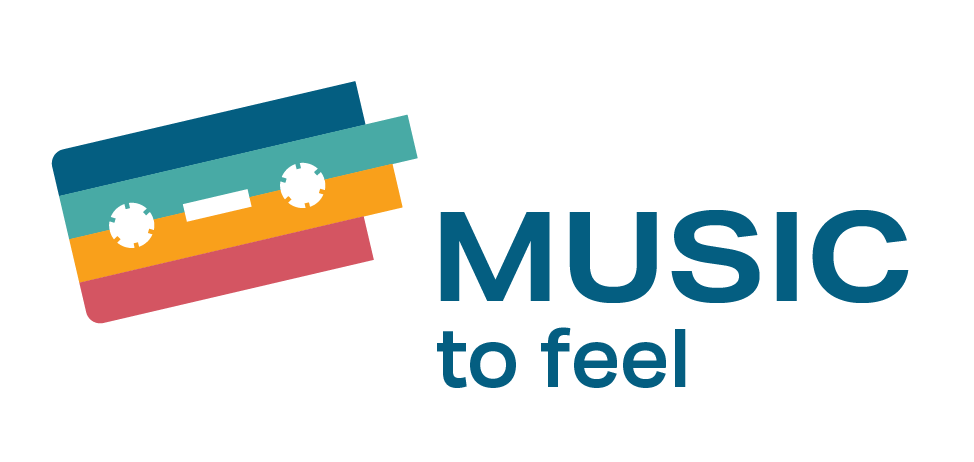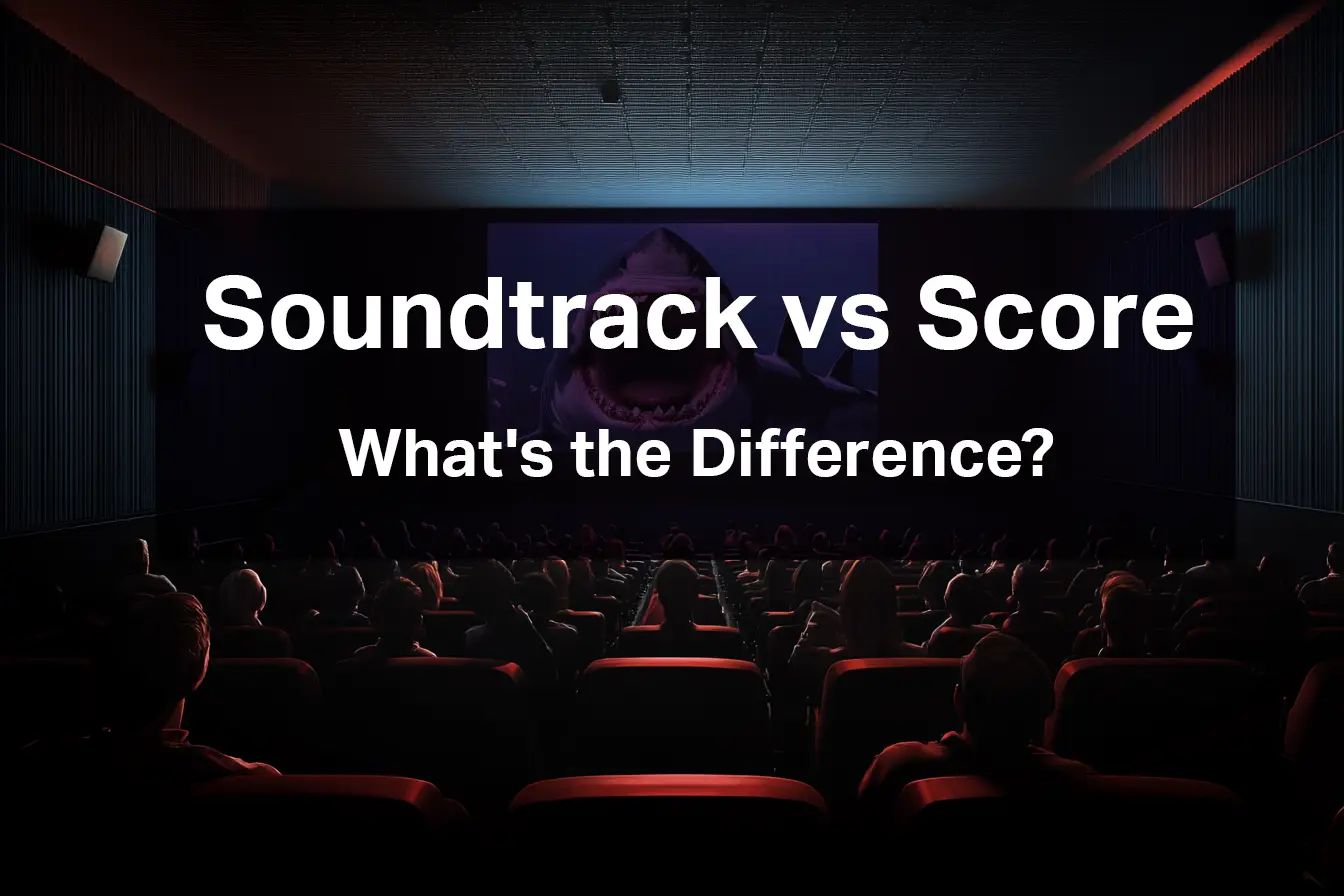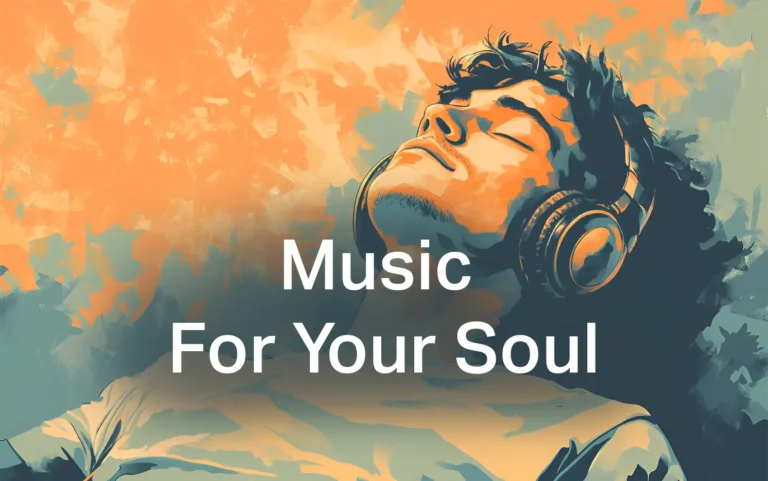Movie Soundtrack vs Score: What’s the Difference?
Did you know there’s a difference between a movie’s soundtrack and its score? While you can often hear these terms used interchangeably, they do mean different things. And can describe completely different music. In short:
A score is original music made for the film, usually by a hired composer. A soundtrack is a collection of pre-existing songs used in the movie, typically chosen by the director.
Because people tend to misuse these terms, it might cause confusion. For example, if someone wants to listen to the score of a film – but searches for its soundtrack instead. Or when a friend recommends you a movie based on its “great soundtrack,” only for you to find out that he meant the original score, and not popular songs used in that picture.
I’ll explain the key differences between a movie soundtrack and a score. So that next time you are looking for an especially cool song you’ve heard in a film, you won’t have any trouble finding it.
What Is a Film Score?
A film score is original music created specifically for a movie. Typically composers are hired for that. They write music that matches the movie’s scenes, vibes, emotions, characters and their actions. The score is very important because it helps setting the entire mood of a scene, or a movie. Score music influences and guides how the audience feels during important moments.
Unlike songs you might recognize from somewhere else, a score is made just for that particular film. It’s a very precise set of musical tracks. And if you want to get technical here – a score also includes both music the characters hear (diegetic) and background music only the audience hears (non-diegetic).
What Is a Movie Soundtrack?
A movie soundtrack is a collection of songs featured in a film. Typically these songs are selected from already existing, licensed music catalog. Just like the movie score this music (in form of songs) helps setting the tone, the mood and the atmosphere of the movie.
A soundtrack often include popular songs the audience already knows. Sometimes that existing “baggage” a song has is the reason why it’s used in a film. The director uses it for additional emotional and entertainment impact. A good example would be “Immigrant Song” by Led Zeppelin played in Thor: Ragnarok movie scene.
Soundtracks can be released as an album. Some soundtracks are a mix of original score, licensed songs, and dialogue.
Key Differences Between Score and Soundtrack
While a film score consists of original music, a movie soundtrack usually features a collection of already known songs. There are also other differences, see the table below for a detailed comparison:
| Aspects | Score | Soundtrack |
|---|---|---|
| Originality | Original music created specifically for the film. | Collection of already existing songs, or licensed music. |
| Purpose | Enhances emotions, highlights important scenes, and matches the movie’s narrative. | Sets the mood, creates the right vibe with well-known songs. |
| Creation | Composed by a hired musician, typically a composer. | Curated by music supervisors or directors. Features various artists and bands. |
| Relation to Film | Usually plays in the background to support the story. May be very subtle. | Often features music that characters hear. Relies on popular songs that stand out in memorable scenes. |
Scores & Soundtracks Are Not Only For Movies
Scores and soundtracks aren’t used in films alone. You can find them in other forms of entertainment. For example:
- Video Games: Video games often feature original scores. Just like in movies, their music helps to set the tone and enhance the player’s experience.
- TV Shows: TV shows use both scores and soundtracks. Next time you’re watching you favorite TV series – pay attention to what you hear during a thrilling scene. Soundtracks made of popular songs can make any show more memorable.
- Live Events: Concerts or theater productions incorporate scores and soundtracks too. The right music can make an event feel more engaging and immersive.
- Commercials: Advertisements use catchy scores and soundtracks to grab attention and create lasting impressions. Again, they help make the short scenes stay in your head for a long time.
Iconic Soundtracks and Scores Examples
Some soundtracks and scores have become truly iconic. They are now forever linked to their movies. When we hear them, we instantly think of a movie, or a scene. There are too many of them to list here, but I’ll give a few examples:
Famous Soundtracks:
- Pulp Fiction (1994): Probably the most famous Quentin Tarantino’s film. It is known for its amazing soundtrack. To be honest, all Tarantino films are know exceptional music. Pulp Fiction introduced the audience to such great hits like “Misirlou,” “Son of a Preacher Man,” “You Never Can Tell”. Millions of fans discovered these tracks through the movie.
- Guardians of the Galaxy (2014): A modern blockbuster came with a soundtrack featuring classic hits from the ’70s and ’80s. Songs like “Hooked on a Feeling” by Blue Swede, “Ain’t No Mountain High Enough” by Marvin Gaye & Tammi Terrell. These songs perfectly complement their respective scenes.
- Drive (2011): The soundtrack for this movie started the whole music sub-genre. Synthwave as you know it today literally has its roots in that soundtrack. The song “Nightcall” by Kavinsky is a super-hit that inspired numerous synthwave artists to start creating their own music in that style.
Famous Scores:
- Star Wars movies. The score composed by John Williams is instantly recognizable by millions of fans. You can’t think of this franchise without the famous tunes playing in your head. Meanwhile John Williams also created score for film like E.T.: The Extra Terrestrial (1982), the Indiana Jones franchise, Jurassic Park (1993) and more.
- Jaws (1975): Another incredible score by John Williams. Simple but chilling two-note theme is excellent. It builds suspense and tension, and is so effective. Don’t know about you, but whenever I hear it – I start looking for sharks 🙂
- The Good, the Bad and the Ugly (1966): Composed by legendary Ennio Morricone, this is one of the greatest scores in cinema history. Absolutely iconic music. Once you watch the film and hear it, you will never forget it.
Conclusion
Soundtracks are a good way to discover new music. I can’t tell you how many superb songs and new artists I have found through watching movies. It’s way too many to remember. Score is a different kind of music, but it can also have amazing compositions. It just helps to know the difference between the soundtrack and score. So when you are looking for a specific track, you know what to search for.







